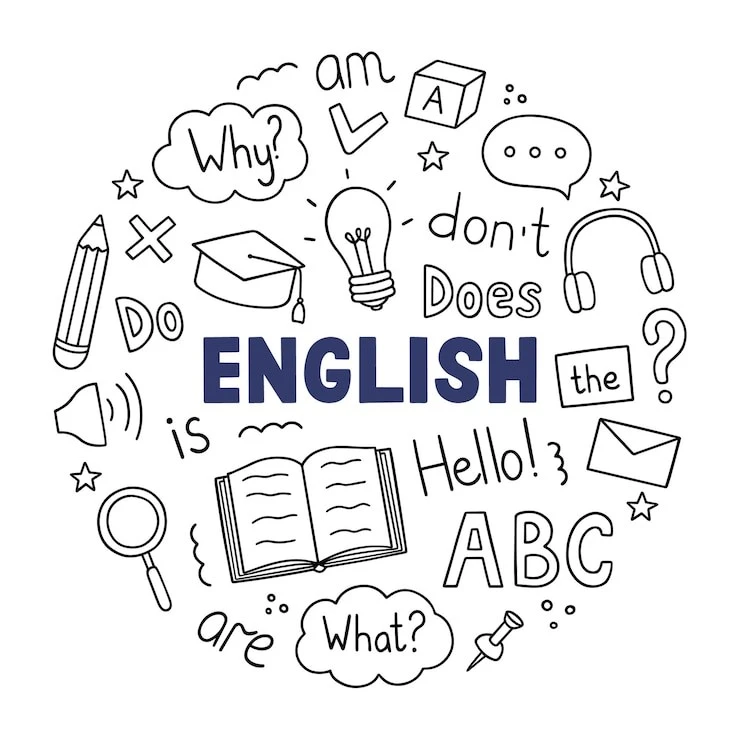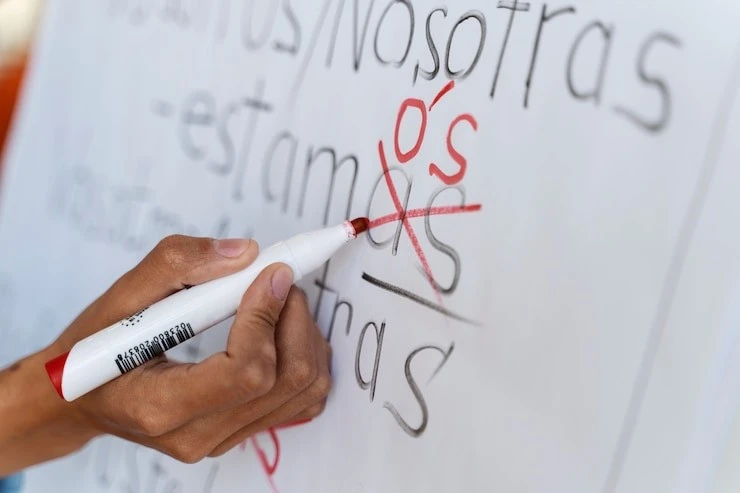Table of Content
Discover How Were and We’re Are Different from Each Other
In the English language, small differences in spelling and punctuation can lead to significant shifts in meaning and grammatical function. Among the words that often cause confusion for both native speakers and learners are were vs we’re. These two words, despite their phonetic and spelling similarity, serve vastly different roles in sentence construction, and convey distinct concepts.
And misusing them in writing can lead to awkward phrasing and a lack of clarity in written communication. Thus, mastering the distinction between “were” and “we’re” is a fundamental aspect of accurate and effective English usage.
In this guide, we will provide a comprehensive understanding of the differences between “were” and “we’re,” clarifying their meanings, grammatical functions, and appropriate contexts for use. We will also dive into the specific contexts in which “were” is used, and explore the meaning and structure of the contraction “we’re,” discussing the broader role of contractions in modern language.
Our purpose is to help provide clear guidelines and examples to help you confidently use these words correctly in your writing, from the practiced eye of a professional web copywriting agency. And by the end of this article, you will have a solid grasp of these two commonly confused words, enhancing the precision and clarity of your writing.
Let’s begin.
Exploring the Context of “Were”

The word “were” is primarily the past tense and the plural form of the verb “to be.” It is used when referring to more than one subject in the past tense. For example, in the sentence “They were at the park yesterday,” the plural pronoun “they” required the use of “were” to indicate a past state of being or location. Similarly, if you were describing a past situation involving multiple individuals, such as “My friends were planning a surprise party,” “were” correctly reflects the past action of the plural subject “my friends.”
Beyond its use with plural subjects, “were” also serves as the past subjunctive form of “to be” for all subjects. The subjunctive is used to express hypothetical, wishful, or conditional situations. This often occurs in “if” clauses that describe something contrary to fact or unlikely to happen.
For instance, in the sentence “If I were a millionaire, I would travel the world,” “were” is used with the singular subject “I” to express a hypothetical situation that is not currently true. Similarly, in the sentence “I wish he were here,” “were” expresses a desire for a situation that is not the present reality.
Moreover, “were” is used in indirect speech when talking about statements made in the past tense. For example, if someone said, “I was tired,” when reported indirectly, it might become, “He said he were tired.” While the shift in the tense in indirect speech can sometimes be more complex, “were” often replaces “was” when the original statement used the past tense of “to be” with a singular subject.
Understanding these different grammatical contexts in which “were” is used is critical for using it correctly and conveying the intended meaning, one of the fundamental rules of copywriting.
What Does We’re Mean?

The word “we’re” is a contraction, a shortened form of the pronoun “we” and the present tense form of the verb “to be,” which is “are.” The apostrophe in “we’re” indicates the omission of the letter “a” from “are.” Therefore, “we’re” always signifies the present tense and always refers to a group that includes the speaker or writer. It is a common and informal way to say “we are.”
You will encounter “we’re” in various contexts where a group, including the speaker, is performing an action, experiencing a state of being, or located somewhere in the present. For example, “We’re going to the movies tonight” indicates a present intention of the speaker and others. Similarly, “We’re happy to help” expresses a present state of being or willingness of the group. And “We’re right here” indicates the present location of the speaker and others.
It’s important to remember that because “we’re” is a contraction of “we are,” it always functions in the present tense and always involves the first-person plural pronoun “we.” It cannot be used to refer to a past situation or a hypothetical scenario involving “we.”
The Role of Contractions in the Evolution of Modern Language

Contractions, like “we’re,” play a significant role in the evolution and fluidity of modern English. They represent a natural tendency in spoken language to shorten frequently used phrases for ease and speed of communication.
Over time, many of these spoken shortcuts have become accepted and integrated into informal written English. This is reflected in the conversational tone that is increasingly common in various forms of communication, from personal emails and texts, to social media posts and even some styles of professional digital copywriting. Doing so allows us to have:
- A relaxed and conversational tone in writing. Contractions mimic the way people naturally speak, making your writing feel more approachable and less formal. This helps engage a reader better and creates a sense of connection.
- Efficiency and smooth flow in written language. By combining words and omitting sounds, contractions can make sentences more concise and easier to read. This is quite valuable when efficiency is important, such as in headlines, social media updates, or quick notes.
The widespread use of contractions also reflects the dynamic nature of language, constantly adapting and evolving to meet the needs and preferences of its speakers and writers. While formal copywriting skills often calls for the full forms of words, understanding the role and appropriateness of contractions like “we’re” is essential for navigating the nuances of modern English communication.
Were vs. We’re – When to Use Which Word?

The key to correctly using “were” and “we’re” lies in understanding their distinct meanings and grammatical functions. To determine which word to use, consider the following four criteria.
- Tense
- Subject
- Subjunctive mood
- Expansion
By consciously considering the factors above, you can confidently distinguish between “were” and “we’re” and ensure accurate and clear communication in your writing. Let’s take a look at them in greater detail.
The Tense
If you are referring to a past situation or state of being, you will likely need “were.” For example:
- “They were playing in the garden.” (Past action of a plural subject)
- “The books were on the table.” (Past state of being/location of a plural subject)
- “If the weather were nicer, we could go for a walk.” (Past subjunctive, hypothetical situation)
If you are referring to a present situation or state of being involving “we,” then “we’re” is the correct choice. For example:
- “We’re excited about the upcoming vacation.” (Present state of being of “we”)
- “We’re working on a new project.” (Present action of “we”)
- “We’re going to the meeting now.” (Present intention of “we”)
The Subject
If the subject of the verb is plural and the action or state is in the past, use “were.” If the subject is “we” and the action or state is in the present, use “we’re.” This is the simplest of the factors to evaluate among the four.
The Subjunctive Mood
If you are expressing a hypothetical, wishful, or conditional situation (often starting with “if” or “wish”), and the verb is “to be” in the past tense, use “were” regardless of whether the subject is singular or plural.
The Expansion of the Word
If you are unsure, try expanding “we’re” to “we are.” If the sentence makes sense with “we are” and you are referring to the present tense, then “we’re” is correct. If the sentence requires a past tense form or doesn’t logically fit with “we are,” then “were” is likely the correct choice.
FAQs
| Is it correct to say we were or we are? Depending on the specific instance, you should use we are for present continuous, and we were for past continuous. |
| Is we’re the same as we were? No, we’re is the contracted form of we are, not we were. |
| Do we say there was or there were? It all depends on the subject of the sentence. If singular, then the former would be used, and if plural, then the latter. |
Conclusion
The distinction between “were” and “we’re,” while often a source of confusion due to their similar pronunciation, is fundamental to accurate English writing. “Were” serves as the past tense plural form and the past subjunctive form of the verb “to be,” used to describe past states, actions of multiple subjects, or hypothetical situations. Conversely, “we’re” is a contraction of the present tense “we are,” always referring to a group including the speaker in the present moment.
Understanding the grammatical roles and tenses of these two words is crucial for conveying your intended meaning clearly and avoiding common errors. By paying close attention to the context of your sentence, the subject involved, and the tense you wish to express, you can confidently navigate the difference between “were” and “we’re,” ensuring more precise and effective written communication.

Unleash your brand story`s potential with eContentSol – your creative writing companion. We craft narratives that captivate. Ready to elevate your content game? Dive into creativity with us and let`s bring your ideas to life.


